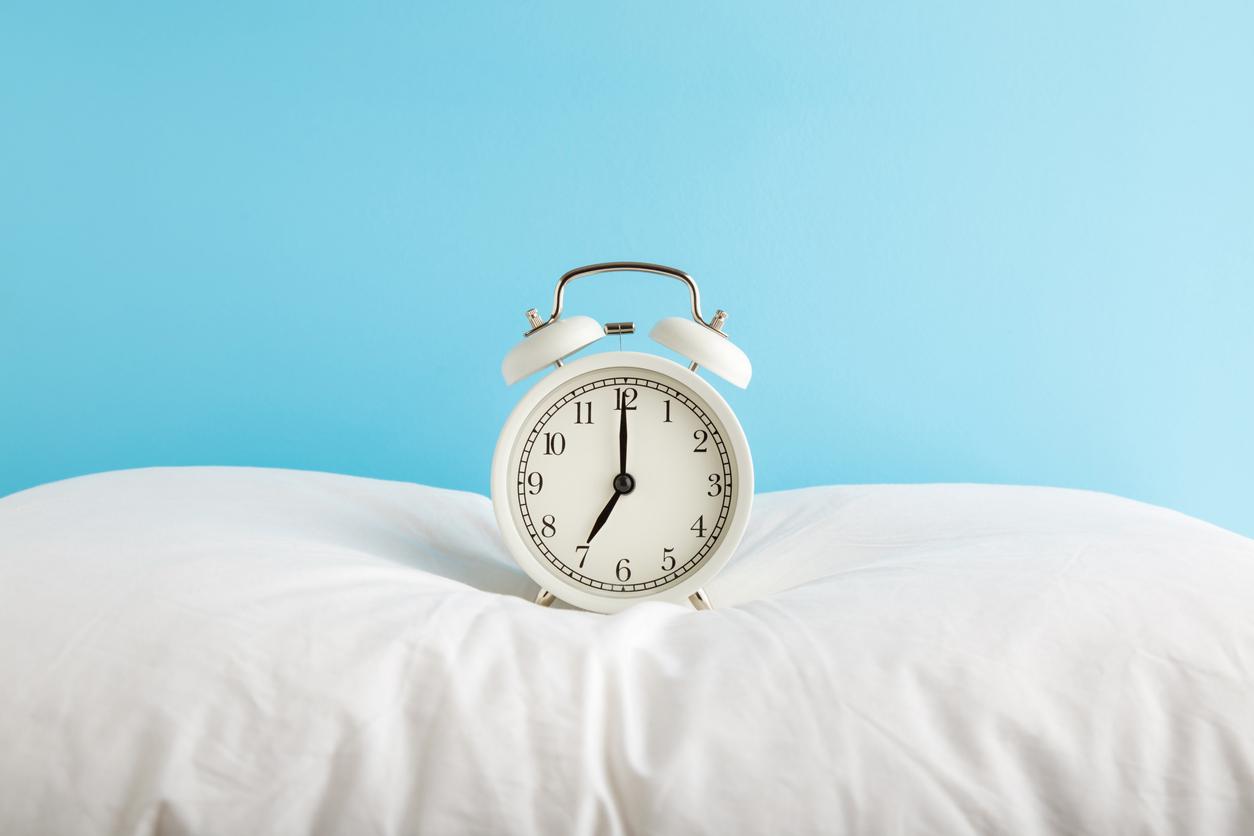The transition to summer time will take place on the night of Saturday March 25 to Sunday March 26, 2023 at 2 a.m. (it will then be 3 a.m.): what are its effects on sleep?

- The transition to summer time is more difficult to manage than the transition to winter time.
- The body’s adaptation to the time change varies from person to person and can last from a few days to a few months.
- To guard against the effects of the time change, it is essential to adapt your sleep cycle in advance.
While we sleep, between Saturday and Sunday, March 26, the clocks on our phones and other devices will jump one hour in time, from 2 a.m. to 3 a.m. to follow the transition to ‘summer time. If, for some, this time change will have few notable consequences, several studies nevertheless point out that it can affect our biological clock, with harmful effects on our long-term sleep.
Switching to summer time is generally more difficult to manage than switching to winter time, for several reasons. First, since it deprives us of an hour of sleep, it is less easy to absorb. In addition, when daylight saving time changes, we move away from solar time and therefore from our natural sleep/wake cycle. Finally, our body is required to suddenly adjust to a different schedule, which leads it to not be well synchronized for a few days.
The transition to daylight saving time is more difficult for some people
The adaptation of the organism to this jet lag that we impose on it will vary from one person to another and can last a few days for morning chronotypes (people who have sleep in advance of the phase: who fall asleep early and who wake up early) to several months for late chronotypes (those who have a natural tendency to fall asleep late and get up late).
Indeed, for the latter, this change would be particularly badly experienced, since they record an average of 30 minutes late on their 24-hour cycle. In addition, young children, adolescents and seniors are more likely to suffer negative effects, as are night workers, and people with sleep disorders who will find it more difficult to adapt. at the new time.
How to prepare well for the time change?
To protect yourself as much as possible from the harmful effects of the time change on your sleep cycle, it is essential to prepare your sleep in advance. For example, you can start adapting your sleep schedule three or four days before the time change, advancing your bedtime and getting up between 15 minutes and 30 minutes each day. This will help the body adapt smoothly to daylight saving time.
Then, you should not arrive at the time change with a lack of sleep and/or too irregular sunrise and sunset times. If you shift by staying up very late and sleeping in on weekends, you risk causing a break in the sleep/wake rhythm and gradually disrupting your biological clock. This is why it is not recommended to go to bed late the evening of the time change or to compensate for the lack of sleep the next day with a lie-in.
Expose yourself well to light to better synchronize your biological clock
Finally, it is important to expose yourself to as much natural light as possible. When press conferenceTuesday March 14, from the National Institute of Sleep and Vigilance (INSV), Dr Claude Gronfier returned to the importance of this exhibition, the light being “the most powerful internal clock synchronizer”. “It is indeed exposure to light during the day and darkness during the night that allows the biological clock to be synchronized to the 24-hour day. In addition to regulating our sleep schedules, this exposure to daylight optimizes the quality of our nights”explains the chronobiologist and researcher at Inserm.
The problem is that we spend less and less time outdoors. However, as Dr. Gonfrier points out, this underexposure to natural light, which can be associated with nighttime overexposure to artificial light, via screens (smartphones, television, tablets, etc.) and city lights, disturbs both our biological clock and the quality of our sleep.

















